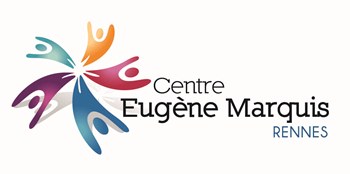A first-in-human phase 1/2 study of FGF401 and combination of FGF401 with spartalizumab in patients with hepatocellular carcinoma or biomarker-selected solid tumors
Résumé
Background Deregulation of FGF19-FGFR4 signaling is found in several cancers, including hepatocellular carcinoma (HCC), nominating it for therapeutic targeting. FGF401 is a potent, selective FGFR4 inhibitor with antitumor activity in preclinical models. This study was designed to determine the recommended phase 2 dose (RP2D), characterize PK/PD, and evaluate the safety and efficacy of FGF401 alone and combined with the anti-PD-1 antibody, spartalizumab. Methods Patients with HCC or other FGFR4/KLB expressing tumors were enrolled. Dose-escalation was guided by a Bayesian model. Phase 2 dose-expansion enrolled patients with HCC from Asian countries (group1), non-Asian countries (group2), and patients with other solid tumors expressing FGFR4 and KLB (group3). FGF401 and spartalizumab combination was evaluated in patients with HCC. Results Seventy-four patients were treated in the phase I with single-agent FGF401 at 50 to 150 mg. FGF401 displayed favorable PK characteristics and no food effect when dosed with low-fat meals. The RP2D was established as 120 mg qd. Six of 70 patients experienced grade 3 dose-limiting toxicities: increase in transaminases ( n = 4) or blood bilirubin ( n = 2). In phase 2, 30 patients in group 1, 36 in group 2, and 20 in group 3 received FGF401. In total, 8 patients experienced objective responses (1 CR, 7 PR; 4 each in phase I and phase II, respectively). Frequent adverse events (AEs) were diarrhea (73.8%), increased AST (47.5%), and ALT (43.8%). Increase in levels of C4, total bile acid, and circulating FGF19, confirmed effective FGFR4 inhibition. Twelve patients received FGF401 plus spartalizumab. RP2D was established as FGF401 120 mg qd and spartalizumab 300 mg Q3W; 2 patients reported PR. Conclusions At biologically active doses, FGF401 alone or combined with spartalizumab was safe in patients with FGFR4/KLB-positive tumors including HCC. Preliminary clinical efficacy was observed. Further clinical evaluation of FGF401 using a refined biomarker strategy is warranted. Trial registration NCT02325739 .
Domaines
Cancer
Origine : Fichiers éditeurs autorisés sur une archive ouverte
licence : CC BY - Paternité
licence : CC BY - Paternité



